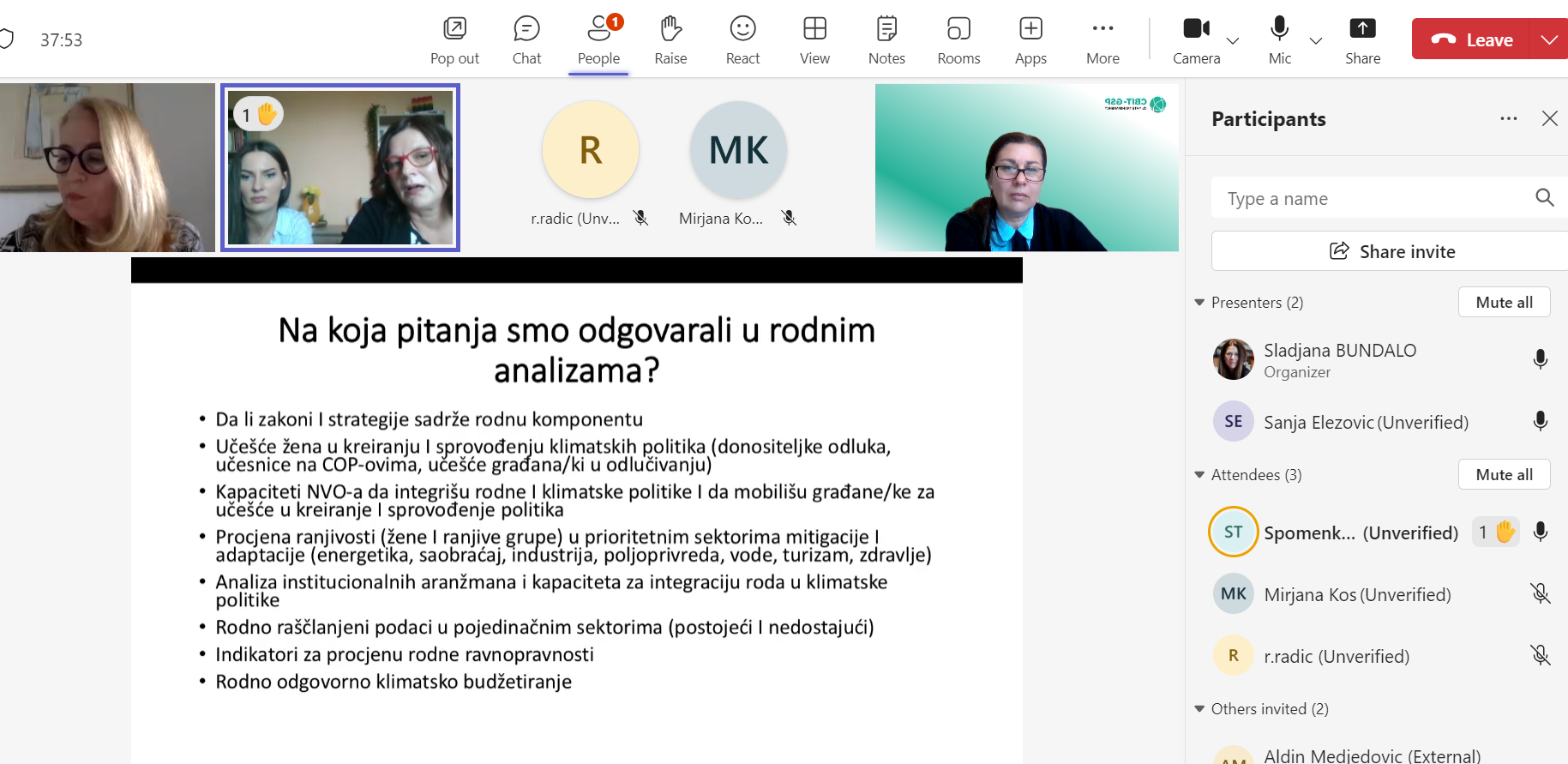
BACKGROUND AND CONTEXT
Climate change as a complex environmental and social crisis is affecting the whole world but also, each individual, women specifically. Persistent gender inequality significantly impacts how we think about and implement climate mitigation measures. Globally, there is recognition that climate change policies must address and support women’s roles in enhancing resilience and promoting zero-carbon development. This involves acknowledging the structural gender inequalities that hinder progress for women and sustainable development overall.
In 2001, during COP 7 in Marrakesh, the first decision related to improving women’s participation in bodies established under the United Nations Framework Convention on Climate Change and the Kyoto Protocol was agreed upon. Subsequent decisions emphasized gender considerations across various aspects of climate policy and action. It wasn’t until 2014 that COP 20 adopted the Lima Work Programme on Gender as a standalone decision, urging parties to promote gender balance, sensitivity, and responsiveness in climate policy. In 2015, at COP 21, Paris Agreement further emphasized gender equality, particularly in capacity building, aiming for a participatory, cross-cutting, and gender-responsive process.
As countries in the region have amassed valuable practices related to integrating gender considerations into climate reporting, the CBIT-GSP project aims to facilitate knowledge exchange through a virtual workshop. This modality will allow countries to share their national experiences, discuss best practices, and explore effective ways to incorporate gender perspectives into their climate policies and reports.
Bosnia and Herzegovina has proactively engaged with the CBIT-GSP, requesting the organization of a peer learning and virtual learning session. Their focus lies on a tailored gender approach and the successful mainstreaming of gender considerations in transparency reporting. Among the countries in the region, Montenegro stands out as a recognized contributor, possessing both capacity and results to share in this collaborative endeavor.
Current initiatives in Bosnia and Herzegovina often treat gender considerations as peripheral, resulting in a limited understanding of gender dynamics in the context of climate change. Incorporating gender perspectives elevates the transparency of climate reporting by acknowledging and addressing the distinctive impacts of climate change on various genders, thereby enhancing the overall quality of climate reporting.
OBJECTIVES
The primary goal of the virtual webinar and peer learning is to deepen understanding of the gender perspective in transparency reporting. It aims to facilitate knowledge exchange regarding the integration of gender considerations into climate policy and reporting, using practical examples and experiences from Montenegro. Participants will also have the opportunity to share their advancements in addressing gender and climate change issues, as well as engage in discussions about the challenges and opportunities related to transparent and sustainable gender reporting.
With specific objectives this support aims to:
- Improve knowledge of BiH national team about the gender approach and its contributions in the context of recent transparency reporting (NCs, BURs, NDCs, NAPs). This includes exploring how gender considerations can be integrated into these instruments to ensure more effective and equitable climate action at various levels of governance,
- Generate new insights of gender mainstreaming in CC issues to inform future transparency reporting within the ETF, leading to more informed and effective processes.
- Equip the BiH national experts and government officials with practical knowledge and resources they can use for development of further climate related reports, strategies, measures within the country, amplifying the impact and reach of gender-responsive climate change approaches,
- Obtain practical information on strategies to incorporate gender considerations into climate policies, plans, and initiatives,
- By sharing experiences, success stories, and lessons learned between country teams of Bosnia and Herzegovina and Montenegro, the event will build a comprehensive knowledge base that can inform and inspire future initiatives.
The virtual exchange aims to gather experts of gender centers in Bosnia and Herzegovina, officers and gender focal points from relevant ministries as well as experts from various sectors responsible for climate transparency reporting, climate policy development and climate actions as well as gender NGOs.
TIME and LANGUAGUE
The support will be provided within two virtual events, during the May 2024.
Language of support: BHS/Serbian